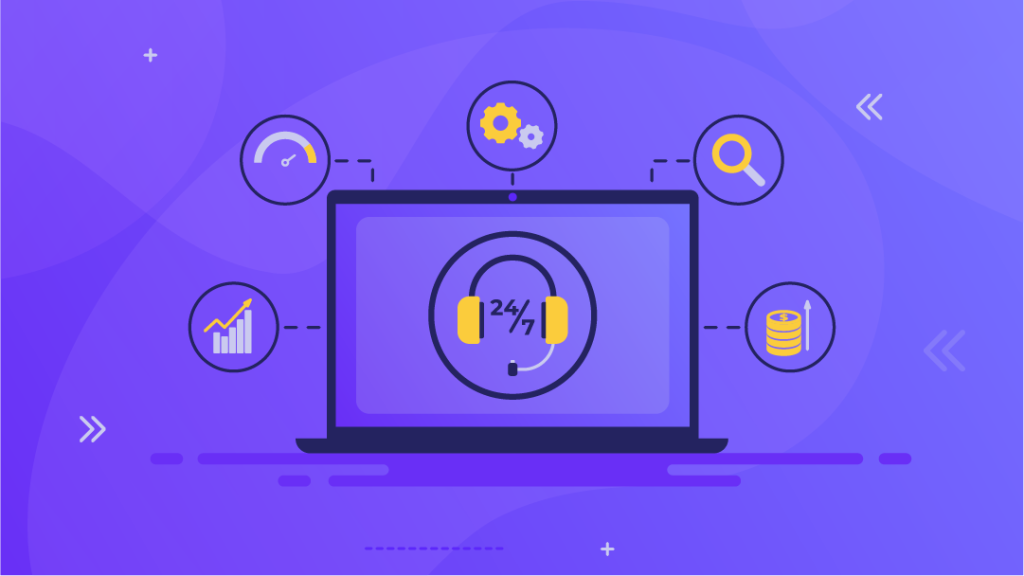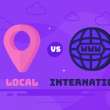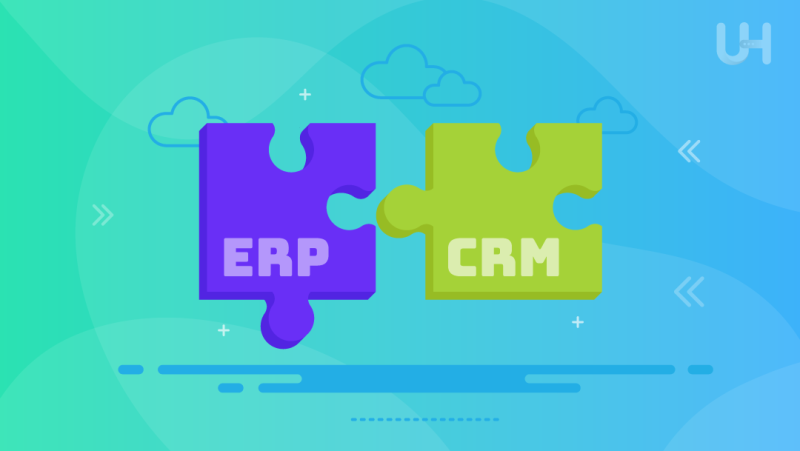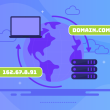In the unexpectedly evolving worldwide employers, staying aggressive requires embracing the modern generation that may drive performance and foster growth. Two vital devices on this virtual transformation journey are Enterprise Resource Planning (ERP) and Customer Relationship Management (CRM) structures. Together, they shape a robust aggregate that can revolutionize corporations across industries.
CRM plays a vital role in every business. Continue reading to discover what CRM hosting is and why it holds such importance
The Dynamics of ERP
In the world of business management, the time period “ERP” stands as an acronym for “Enterprise Resource Planning,” representing a multifaceted software solution that has profoundly stimulated how groups perform and thrive in brand new dynamic industrial corporation surroundings. ERP structures are, sincerely, the emotional center that fuels the transformation of organizations throughout numerous industries, permitting them to streamline operations, optimize belongings, and advantage unheard-of ranges of performance and competitiveness.
The Essence of ERP
At its center, an ERP tool is a complicated suite of integrated software programs designed to control and automate a big selection of critical commercial business enterprise methods, spanning from finance and human assets to brewery inventory management, procurement, production, and more. The overarching aim of ERP is to offer a centralized digital platform that consolidates and harmonizes information and workflows across one-of-a-type departments inside an organization.
1. Efficient Data Management
One of the primary functions of ERP is to serve as a centralized repository for all crucial commercial agency information. This centralized technique eliminates fact silos and redundancy, making sure that each branch in the organization is working with consistent, up-to-date statistics. This not only effectively reduces mistakes but also streamlines choice-making tactics.
2. Process Automation
ERP systems are famed for their potential to automate ordinary, time-eating obligations that have been as quickly as treated manually. This automation extends throughout diverse enterprise capabilities, which include information entry, economic reporting, order processing, and stock management. The quiet end result is a massive discount on human mistakes and big time savings for employees.
3. Real-time Insights
One of the most massive benefits of ERP structures is their capability to offer real-time records analytics and reporting. By offering instantaneous access to essential enterprise metrics, ERP empowers choice-makers to make informed picks swiftly. This actual-time perception of universal overall performance metrics, monetary information, and inventory stages enables companies to respond proactively to market modifications and rising opportunities.
4. Enhanced Collaboration
ERP systems foster flow-useful collaboration in corporations. They damage departmental limitations by providing a not-unusual platform for sharing information and insights. As a result, personnel across one-of-a-type departments can collaborate more efficiently, leading to extended productivity and innovation.
ERP and Business Transformation
The dynamics of ERP amplify a way past mere software program application implementation. They embody a fundamental shift in how companies approach their operations, strategies, and standard organization models. Here are some methods wherein ERP systems catalyze enterprise transformation:
1. Scalability
ERP structures are very scalable, allowing agencies to conform and grow without the restrictions of conventional infrastructure. As businesses extend, their ERP systems can scale to house accelerated records and workflow necessities seamlessly.
2. Improved Customer Service
Efficient and correct order processing, stock management, and timely responses to customer inquiries are all made viable via ERP. This ends in more applicable client satisfaction and loyalty.
3. Enhanced Decision-Making
Real-time admission to vital statistics empowers selection-makers to reply hastily to marketplace modifications and evolving client needs. Informed decisions are the cornerstone of commercial organization agility and achievement.
4. Cost Efficiency
By automating manual obligations and optimizing strategies, ERP systems lessen operational prices. Efficient stock manipulation, as an example, can bring about significant financial savings in sporting prices and waste-cut prices.
5. Competitive Advantage
Businesses that include ERP structures gain an exceptional competitive gain. They can carry out more correctly, offer higher customer support, and make data-driven picks, positioning themselves as leaders of their respective industries.
The Magic of CRM

In the virtual age, in which companies are constantly looking for progressive ways to live competitively and patron-targeted, Customer Relationship Management (CRM) emerges as an actual magician in remodeling the way corporations interact with their customers. In our exploration of “ERP and CRM Unleashed: Transforming Businesses Through Technology,” it becomes apparent that CRM performs a pivotal characteristic in this transformation.
1. Customer-Centricity
CRM revolves around one middle principle – putting the customer at the coronary heart of the entirety. It permits companies to benefit from an intimate knowledge of their customers’ behaviors, alternatives, and goals. With a 360-degree view of consumer interactions, corporations can customize their communication, merchandise, and offerings, creating a unique and remarkable patron experience.
2. Sales Growth
One of the spell-binding competencies of CRM is its potential to reinforce income. It acts as an effective tool for lead management, profit forecasting, and possibility monitoring. Sales agencies can prioritize leads correctly, resulting in elevated conversion prices and income generation. According to the Small Business HQ, CRM moreover offers insights into go-promoting and upselling possibilities, similarly contributing to the income boom.
3. Marketing Precision
Marketing campaigns regularly rely upon the “spray and pray” approach, hoping to reach the right goal in the marketplace. CRM brings precision to advertising efforts. With its statistics-pushed insights and segmentation capabilities, companies can target specific purchaser segments with tailored messages. Marketing automation streamlines the gadget, ensuring that the right message reaches the right target market at the proper time and, in the long run, the usage of higher conversion quotes.
4. Enhanced Customer Service
Exceptional customer support is a trademark of achievement businesses, and CRM equips businesses with the device needed to deliver without a doubt. CRM systems provide functions for fee tag manipulation, issue tracking, and case resolution. Customer guide groups can reply right away and correctly to inquiries and troubles, foremost to improve consumer satisfaction and loyalty.
As we delve deeper into the transformative power of CRM inside the context of ERP and CRM integration, the synergy between those technologies becomes even more apparent. The aggregate of ERP and CRM creates a holistic view of every internal operation and purchaser interaction. This leads to more knowledgeable selection-making, seamless records going with the flow, and more suitable client insights.
The Synergy of ERP and CRM
While ERP and CRM software excel in their respective domains, the actual transformational power includes slight after they artwork collectively seamlessly. Integrating ERP and CRM offers a holistic view of every inner operation and client interaction, resulting in a synergistic impact which could remodel groups.
1. Seamless Data Flow
Integration between ERP and CRM ensures a smooth waft of statistics amongst departments. For example, income teams can get the right of entry to actual-time stock statistics, even as finance groups can view consumer order records, ensuring a smoother client level.
2. Enhanced Customer Insights
By combining ERP statistics with CRM statistics, businesses benefit from a more profound expertise of patron behavior and options. These valuable statistics can inform product improvement, pricing techniques, and advertising and advertising and marketing campaigns.
3. Improved Forecasting
Integrating income information from CRM with stock and production information from ERP allows more correct names for forecasting. This, in flip, reduces the threat of overstocking or understocking stock.
4. Efficient Order Processing
Orders initiated inside the CRM tool can seamlessly flow into the ERP software for processing, reducing manual record entry and order errors.
CRM Hosting with Ultahost
When imposing CRM and ERP structures, selecting the right hosting provider is critical to ensure reliability, protection, and scalability. Ultahost gives pinnacle-notch CRM hosting answers that could accommodate the wishes of agencies of all sizes. Their net website hosting offerings offer:
- Reliability: Ultahost guarantees minimum downtime, keeping your CRM and ERP structures handy and operational even as you want them most.
- Security: Data safety is paramount, and Ultahost takes it seriously. They provide robust security features to guard your touchy company statistics.
- Scalability: As your commercial enterprise grows, your CRM and ERP systems need to increase with you. Ultahost’s scalable internet website hosting answers let you boom your era infrastructure seamlessly.
Conclusion
ERP and CRM structures are transformational technologies that would empower agencies to perform extra efficiently, beautify customer relationships, and obtain a sustainable boom. Their synergy, when coupled with reliable CRM web hosting services like those provided with the aid of Ultahost, creates an effective ecosystem that drives innovation and competitiveness in modern-day dynamic industrial agencies worldwide. To stay ahead of the curve, companies must remember to integrate ERP and CRM systems and associate with a trusted hosting issuer like Ultahost.













